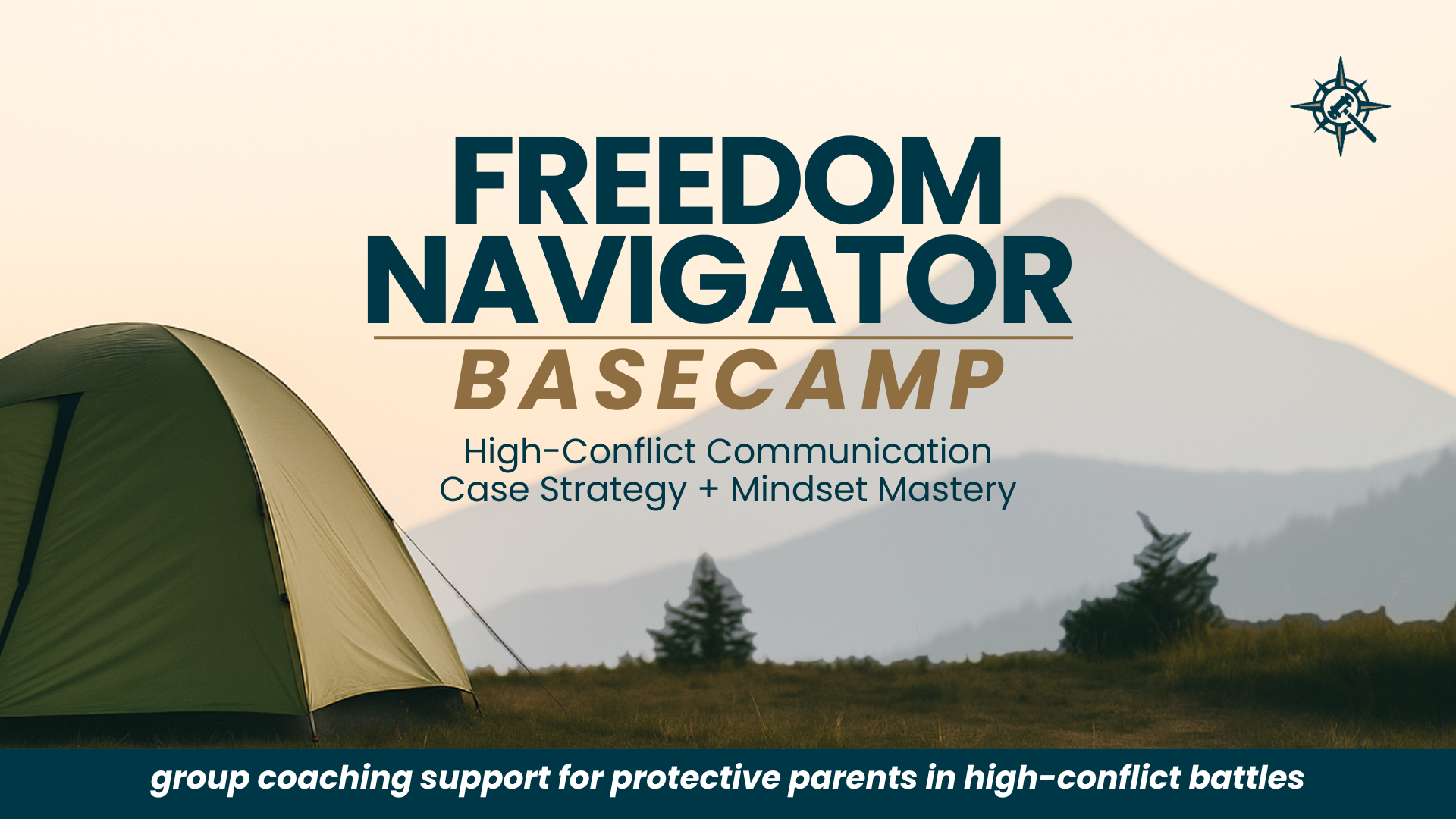Compliance Isn’t Weakness—It’s Survival
Part 4 of 5 - How to Anticipate and Survive Post-Separation Abuse Dynamics in Family Court
In abusive relationships, compliance often looks like submission.
But it’s really just survival under pressure.
Let’s be clear:
Most survivors don’t comply because they’re naïve or passive.
They comply because—on some level—they instinctively understand that refusal could lead to punishment, escalation, or outright danger.
What Is Compliance in an Abusive Dynamic?
Compliance is giving in—not because you agree—but because you subconsciously sense it’s safer to go along than it is to push back.
It sounds like:
“If I just keep the peace, maybe he’ll calm down.”
“It’s not worth the fight.”
“This isn’t the hill I want to die on—literally or emotionally.”
Compliance isn’t the same as consent.
It’s what happens when the freedom to say no without consequences doesn’t exist.
So let’s say it again:
If you’ve given compliance in the past, that was survival strategy. And if you’ve decided it’s time to take action, it’s absolutely crucial to take steps to prioritize safety.
You simply don’t know what they’re capable of, if you’ve never told them “No” or refused to comply before.
What Happens When You Remove Compliance?
The whole abusive system starts to grind.
What once ran “smoothly” (for them) suddenly hits resistance—and that resistance exposes the real level of toxicity, risk, and desperation that have been lurking under the surface.
Often (sometimes for the first time!) you’ll see:
Sudden escalation (emotional, legal, physical, or financial)
New threats or intimidation tactics
Smear campaigns or character assassination
Attempts to lure you back into compliance with charm or fake kindness
Legal maneuvers designed to wear you down and reassert control
This is why safety planning and strategic communication is so essential.
Removing Compliance? You Need a Plan.
If you’ve decided to stop complying—to leave, file, speak up, or draw hard boundaries—you must treat that decision as a high-risk event.
That doesn't mean you shouldn't do it.
It means you should do it strategically.
Ask yourself:
What did they gain from my compliance before?
What part of their ego, identity, or image depended on my cooperation?
What are they likely to do now that I’m no longer playing along?
When you identify what they’re trying to preserve (public image, financial control, sexual freedom), you can more accurately predict how they’ll react when they sense it slipping away.
In Family Court, Expect Pushback
If you were compliant during the relationship (even under duress), don’t be surprised if your ex tries to present that past behavior as proof you were "fine" with everything.
They might say:
“She never complained until now.”
“She signed that agreement voluntarily.”
“She’s just angry that I moved on.”
But compliance under pressure is not consent.
And your past silence is not an admission that the abuse didn’t happen. You need to recognize this for your own sanity, even though you do usually need actual proof in order to prove it in court.
Be prepared to explain—calmly and clearly—that your cooperation was rooted in fear, not agreement. (And ideally, let your attorney do most of that talking for you.)
Empowered Boundaries Aren’t Aggression
When you stop complying, your ex may accuse you of being:
Bitter
Vindictive
High-conflict
Mentally unstable
That’s projection.
They’re not upset because you’ve become a problem.
They’re upset because you’ve stopped being a compliant target.
However, if they can bait you into emotional texts or emails where you’re trying to explain how you feel, or trying to convince them that what they did was hurtful — you’re handing them ammo to weaponize against you in court later.
That’s why it is absolutely essential to master your ability to write emotion-free communication and keep your paper trail focused on the facts. (I’ve got a power-packed Wizard for this here, if you don’t know where to start! )
Coming Soon: How to Use these 4 Elements to Anticipate and Strategize in Your Family Court Case
This isn’t just a theoretical framework—it’s a practical lens to help you stay grounded and strategic during the most high-stakes legal season of your life. Next up: how to put all four elements together.
👉 Subscribe or follow so you don’t miss it.
Want Strategic Steps to Keep Your Paper Trail Airtight?
If you’re done complying just to survive—but you need support to do it wisely and safely—BASECAMP is here to walk with you.

This trauma-informed coaching group empowers you with tactical tools, expert guidance, and battle-tested strategies to navigate court without playing small.
🎯 Learn how to start BASECAMP here.